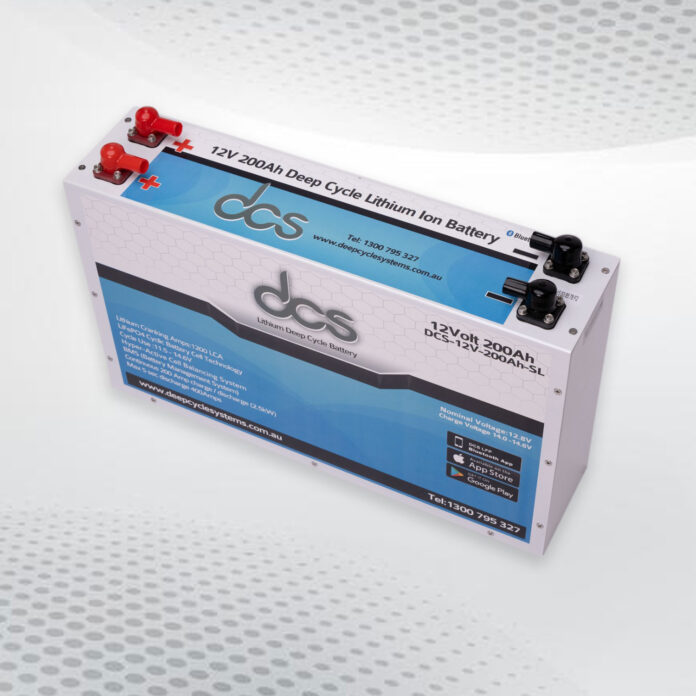If you are reading this, you know that a lithium-ion battery is the energy storage of choice for smartphones, laptops, and other electronics today. They’re durable, leak-proof, lightweight, and affordable. These make these the perfect choice for modern devices that need running for extended periods. Unfortunatelperiods’re such popular lithium; lithium-ion can also have a dark side because they’re so popular in that they can overcharge and create Electrochemical Cancers (EACs) in the electrodes that can ruin your device. They can also fail catastrophically under certain conditions. In this article, we look at what a lithium battery does and how it works to help you make the right battery purchase decision.
What is a Lithium Battery?
This is the part cupartfrom the charger and applies to your device’s electrical system. The positive and negative plates are connected utilizing see the positive and negative plates are connected, a charge and discharge of the lithium batteries take place, resulting in increased energy storage.
How Does a Lithium Battery Work?
A lithium-ion battery works like any other battery, but the difference is that the storage capacity is much higher than entries. LikedentriestyLike different classes, lithium batteries have two electrodes: an anode and a cathode. The anode comprises a metal that receives the charge from the external charger and provides it to the device’s electrical system. The cathode is a metal that the battery is connected to, either on the battery’s own or, in the case of a hybrid d,d battery, in the form of a connection known as a circuit.
Types of Lithium Batteries
There are many types of lithium batteries. Each class has different characteristics that determine how well a battery performs in other applications. Here are the most common types: Thermal Lithium-ion batteries: This type of battery has low self-discharge and a high energy density. They’re perfect for devices that need at room temperature. The compression Lithium-ion battery has a relatively low energy density. Still, it can hold a high charge for long periods period sites that require a charge capability but don’t need to be s reliable as a thermal battery.
Periodic Table Lithium-ion batteries:
This battery has the energy density, but it’s also the most expensive to produce. It’s used in industrial applications that need very high power density. Ionic Lithium-ion batteries: This battery is lightweight and has low energy density. It’s used n devices that require a higher level of power, such requiring a higher power level Downside of Using a Lithium Battery
While lithium-ion batteries have been the standard in portable electronics for some time, there is still room for improvement. That’s why researchers are working on better and more efficient batteries. One area in which researchers are making great strides is in the development of new battery chemistries. Unfortunately, this also means room for improvement in manufacturing lithium batteries. To be more efficient, battery manufacturers are using cheaper and less advanced materials in their products. When cells made with these types obe mistaken, they can short-circuit and cause Electrochemical Cancers (EACs). These can be highly harmful, destroying your device and causing it positively.
When to Use a Lithium Battery
Like any other battery, a lithium battery has its place in the world and when. You can use it whenever you need electrical power, but you do so at the expense of quality. If you want a refreshing change after a long work day, charge your phone using a low-cost generic battery. Consider using a high-quality battery if you travel a lot and want to bring along a power bank.
The battery type you need depends on your device.
You’ll need a different type of battery for each type of device you own. That’s because devices vary in design, functions, and needs. It would help if you balanced your needs against the characteristics of the different lithium batteries.
Make sure the battery fits the device you want to charge.
It would help if you ensured the lithium batteries correctly fits you. If the battery is too big or too small for your device, it won’t be able to deliver the power that your device needs. For example, a laptop battery should fit snugly inside your laptop. If the battery is too computer, you risk overcharging your device.
The Applications of Lithium Batteries
Lithium batteries much a wide range of applications over the years, and they’re being used in many different devices today. The battery lasts up to a week before being needed again for a full charge. These are laptops that use a proprietary battery pack. The battery pack has a specific voltage and amperage and must match the laptop’s battery. One popular way is to use a lead-acid battery. These batts are well for long-term use.
A good option is to use a solar panel that uses a lithium battery. They maintain meager internal resistance rates even under heavy loads(driving at top speeds). so these types of batteries might help power things like smartphones and laptops.
Look for warranties and free replacements in case of issues
You don’t just purchase a lithium battery and put it in a device, but in a machine, RV. Manufacturers usually offer a warranty on their products. If the battery should stop working for any reason, you can contact the manufacturer and request a replacement. Modern lithium batteries have a lifetime of 10 years.
Bottom line – What’s the bottom line?
If you’re looking, A lithium battery is a perfect choice if yore looking for a long-term alternative to a fossil fuel that is expensive and easy to charge. In addition, lithium batteries have a long lifetime, don’t leak, and don’t retain heat—the only downside to using a lithium-ion battery.
